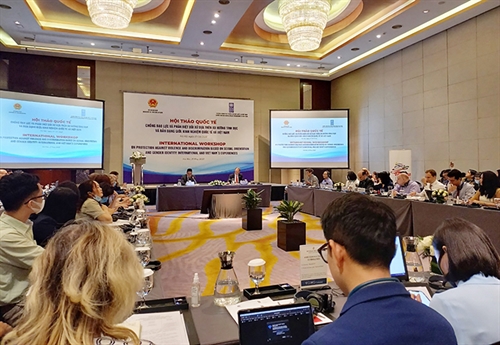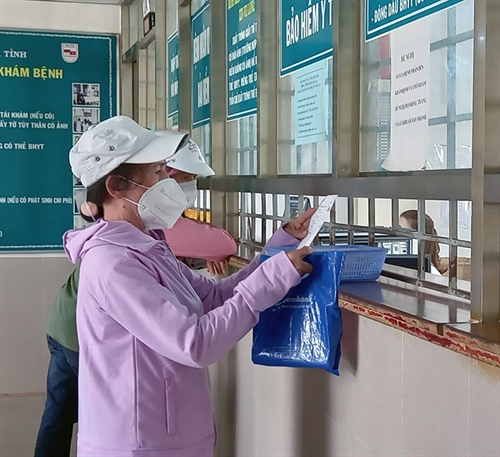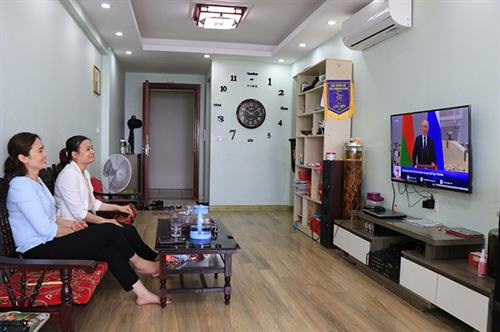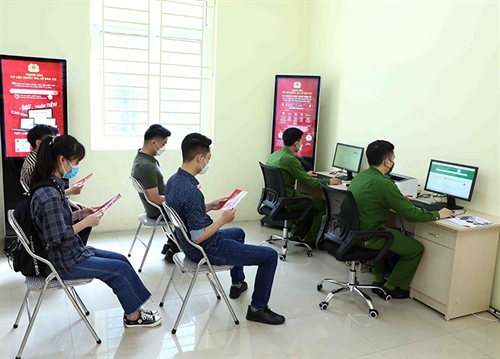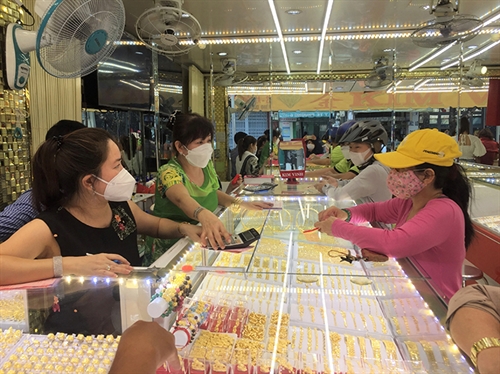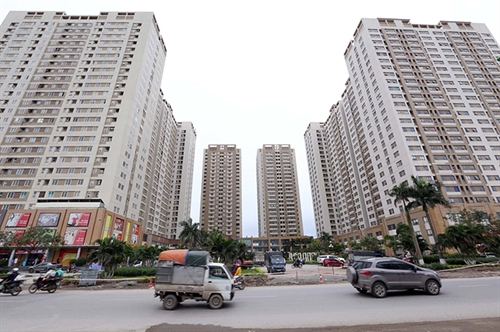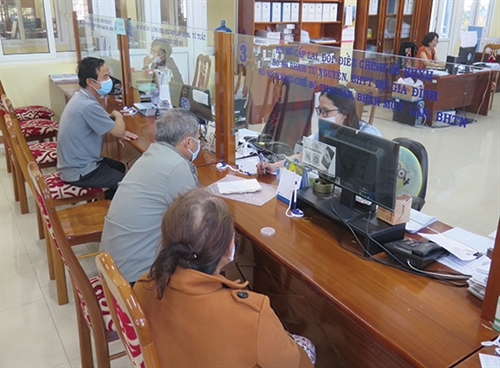Over the last two years, not a few businesses nationwide had to halt their construction projects, of which some are near completion or have been put into operation, because of failure to meet new fire safety regulations.
In a talk with the Tuoi Tre (Youth), D.Th., the owner of a five-star hotel in Lao Cai city, Lao Cai province, said he submitted a dossier of request for approval of his hotel’s fire protection design to competent authorities in 2019. For the time being, the construction of his hotel has been basically finished but Th. remains unaware of how and when to complete fire safety inspection formalities under new regulations so as to put the hotel into operation.
As for B.T.C., the owner of a building for lease in District 3, Ho Chi Minh City, the situation is a little bit different. His property, a building with seven floors and one basement, was put into use in 2009 and at that time satisfied all fire safety requirements. Early this year, C. was suddenly informed by the tenant - a clinic chain operator that the latter has to liquidate the lease agreement ahead of time and close down the clinic because the building does not meet fire prevention and fighting conditions under new regulations.
The “new regulations” mentioned in the above two cases are Government Decree 136/2020/ND-CP, detailing a number of articles of, and providing measures to implement, the 2001 Law on Fire Prevention and Fighting and the 2013 Law Amending a Number of Articles of the Law on Fire Prevention and Fighting, and a series of fire safety regulations issued by Ministry of Construction.
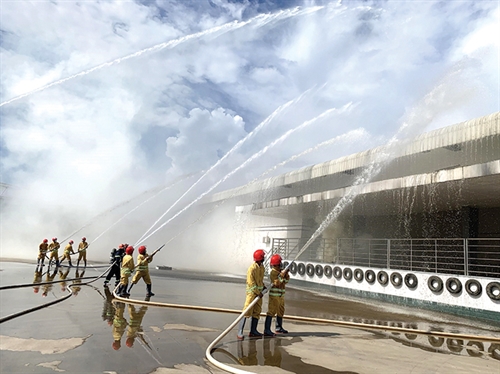 |
| The bird’s eye view of an industrial park in Bac Tan Uyen district, Binh Duong province__Hong Dat/VNA |
Too stringent fire safety regulations
After the tragic fire in An Phu karaoke parlor in Binh Duong province last September which killed 33 people, nobody can doubt the necessity to improve fire prevention and fighting standards so as to ensure the safety for humans and property. The question is how to do that without obstructing production, business and service activities.
Over the last three years, the Ministry of Construction has issued three national technical regulations on fire safety for buildings and constructions, coded QCVN 06:2020/BXD, QCVN 06:2021/BXD, and QCVN 06:2022/BXD, with the latter superseding the former, and it seems that the burning issue facing D.Th. and B.T.C as well as thousands of other businesses, both domestic and foreign-invested, mostly stems from these regulations.
In Dong Nai, a province with 30 industrial zones and 1.2 million workers, almost all manufacturers and other businesses have been affected. According the Japanese Chamber of Commerce and Industry in Vietnam, at least 18 Japan-invested projects worth a total of some VND 3.1 trillion (USD 132.1 million) had been delayed due to new fire safety regulations.
“As required by fire safety inspection units, all structural beams and columns of buildings must be coated with fire-resistant paint. But the authorities do not say which paint is qualified, what quality guarantee index is, where to buy such paint and who will inspect the fire resistance,” said the Director General of an industrial infrastructure leasing enterprise in the port city of Hai Phong. This makes it almost impossible for businesses to obtain a certificate of fire safety inspection and, consequently, they cannot put their factories and warehouses into operation, he explained to the VietNamNet.
Hyosung Vietnam, an RoK-invested fabric manufacturer in Dong Nai province, revealed that it can hardly get a fire safety certificate since the end of 2022. “We don’t know how long it will take for our documents to be approved, and we are on pins and needles with our production expansion plans,” the company’s spokesperson said.
Another big foreign investor, Taiwan’s Foxconn, the electronic component supplier for Apple, also complained that many of its facilities have not passed fire safety inspections for the last two years. “We have many investment plans in Vietnam for two years, so such a procedure will make expansion difficult,” the company’s representative said in a recent meeting with the Ministry of Planning and Investment.
Nguyen Cong Hai, Chairman of the Association of Young Entrepreneurs of Hai Duong province, commented that it is very hard for enterprises to build factories up to the new standards. “It’s not difficult to find a paint supplier and ask for fire-retardant paint but will such paint be accepted by the authorities and does it meet all criteria under the new regulations? Businesses have yet to receive any instructions from competent state agencies,” he said.
Strict fire safety requirements also lead to a huge rise in businesses’ production and investment costs.
Tran Van Hung, Chairman of Tan Thanh Container Corp., a Ho Chi Minh City-based company specialized in container trading and leasing, said the cost of building a new factory is only VND 1.2 billion (USD 51,000) while the new fire safety standards cost VND 1.5 billion.
The situation is the same for fan motor manufacturer Nidec Vietnam. The company plans to renovate its 500-m2 warehouse at the cost of VND 800 million before the COVID-19 pandemic which has now gone up more than six times to VND 5 billion to meet the new fire safety requirements.
Solutions
On April 5, Prime Minister Pham Minh Chinh signed Official Telegraph 220 on removing difficulties and obstacles in fire prevention and fighting.
Accordingly, the Premier requests the Ministry of Public Security to assume the prime responsibility for, and coordinate with the Ministry of Construction and ministries, sectors and localities in, reviewing policies and laws on fire safety and reporting inappropriate contents to competent authorities for amendment and supplementation. The Ministry of Public Security needs to step up the administrative reform and drastically cut down administrative procedures in the field of fire safety inspection, thus meeting practical requirements of socio-economic development. The Ministry is also tasked to classify problems and difficulties facing businesses and provide clear and detailed instructions on how to resolve them.
The cabinet head requires the Ministry of Construction to identify causes of current obstacles related to fire prevention and control in construction of houses as well as commercial and industrial buildings and, on that basis, immediately revise standards and technical regulations in conformity with realities of Vietnam while facilitating production, business and service activities.
While appreciating the cabinet head’s move, the business cycle and legal experts also make some recommendations.
Pham Bac Binh, Chairman of the Da Nang Association of Small- and Medium-Sized Enterprises, suggests that competent agencies should work out a roadmap for application of new fire prevention and fighting requirements so as to help businesses improve fire safety level without exerting adverse impacts on their production and business activities.
Sharing his opinions with VietNamNet, legal expert Nguyen Minh Duc said it was necessary to tighten regulations on fire safety to help reduce the risk of fire and explosion but the feasibility and compliance cost must be taken into careful consideration. If regulations are too strict, compliance cost will outweigh benefits. Hence the most important job to do when formulating technical regulations is to carry out cost-benefit analysis or quantitative impact assessment in other words and stakeholder consultation. Management agencies should hold dialogues with representatives of businesses and associations to collect their opinions and make cost-benefit analysis before revising regulations.
Meanwhile, lawyer Nguyen Duc Manh from Bizlink law firm emphasized the importance of feasibility of regulations. When formulating and issuing a legal norm that affects enterprises and people, state agencies should consider whether Vietnam has necessary and sufficient conditions for the application of such norm. If not, a specific implementation roadmap must be devised, otherwise it would block production and business activities. “The State needs to pay attention to fire safety issues but must take feasibility into account. Safety cannot be ensured without feasibility,” the lawyer said.-

